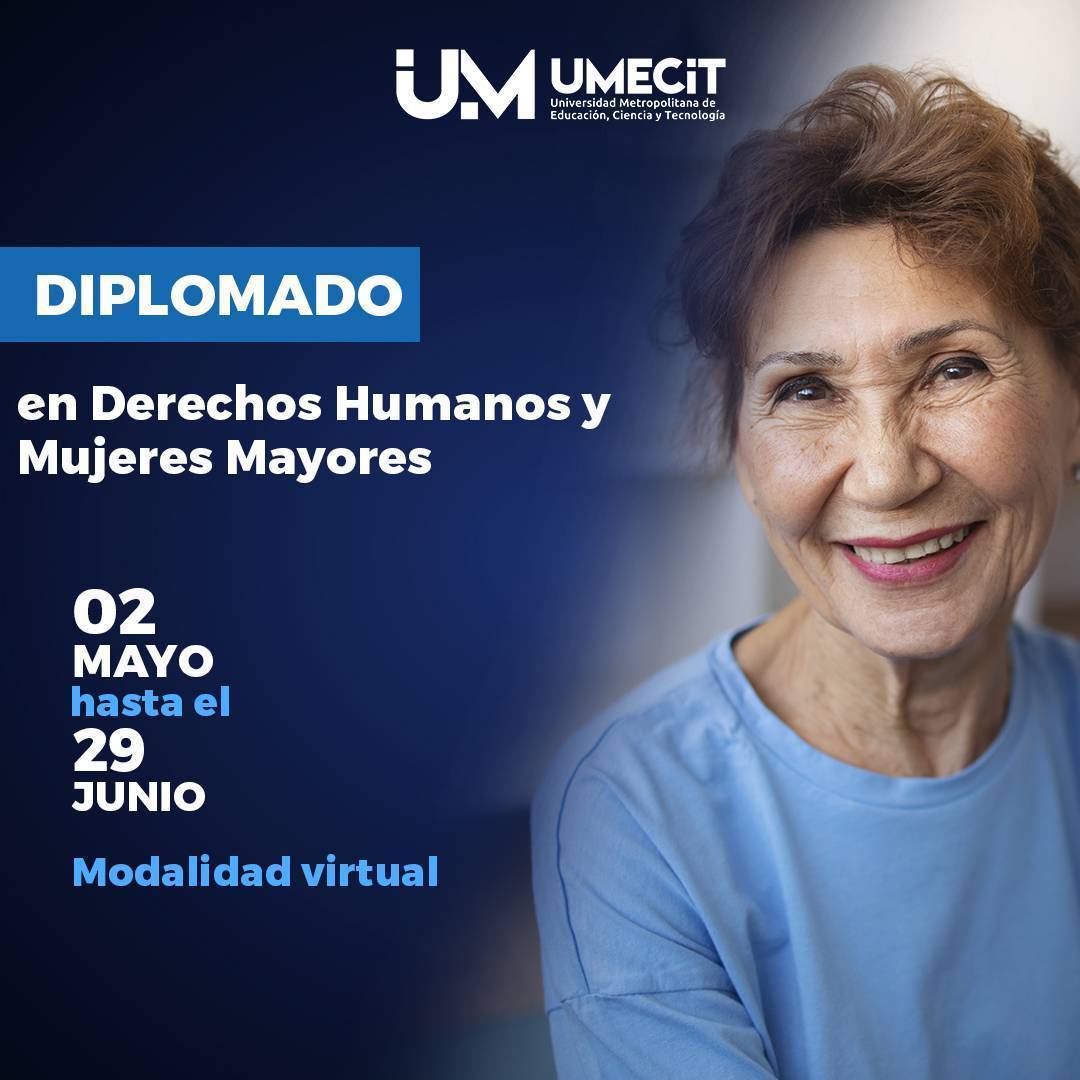Diploma in Human Rights and Older Women
The 2010 Population and Housing Census indicated that life expectancy at birth was 73 years for men and 79 years for women. In 2015, this figure changed, for men at 74 years and 80 years for women.
Around 51.7 % of the Panamanian elderly population does not have the right to retirement or a pension and of these, 22.8% have access to services of the
social security as a beneficiary. The 48% of this population group have access to social security.
Taking these alarming figures into account, the Metropolitan University of Education, Science and Technology - UMECIT - will carry out the Diploma in Human Rights and Older Women, from May 2 to June 29, 2023, on a Tuesday and Thursday schedule from 6 pm to 8 pm, virtually, with the aim of analyzing the issues of older women from feminism and based on Human Rights.
The study that has led to the creation of this Diploma also indicates that the 2015 census indicates that 47.5% of the elderly live in extended families and 52.5% do so in other types of households. Women are located in
a large part in these extended families and contribute to the tasks of caring for descendants and grandchildren. 23.6% of households are headed by a person aged 60 or over.
It is expected that by the year 2050, there will be an increase in the age of the elderly population and women will be the ones with the greatest longevity. However, their condition and denotes disadvantages, determined by a set of discriminatory and exclusive practices and that are present throughout the life cycle, and it is in old age where it is most accentuated.
It is imperative to specifically address this population, since despite the struggles and women's movements, they have not been sufficiently visible, although there have been significant achievements in their favor. The approach to the care of older women should be with an intersectional, intergenerational and interdisciplinary approach. The significant absence of experiences in Panama, of working on the human rights of older women with a gender approach, leads us to promote a Diploma to train new professionals of different careers with a perspective from Feminism; this is from the needs of women to not be subordinated or discriminated against in this stage of life, to the deconstruction of stereotypes, myths and ageist practices that exclude them as an older person.
- General Objective of the Diploma
Analyze the themes of Older Women from Feminism and based on Human Rights.
- Specific objectives:
Train professionals sensitive to inclusive approaches
tending to eradicate the very old or ageisms, and the stereotypes
discrimination against the elderly.
Contribute to the formulation and strengthening of policies
public services and programs that contribute to an active and healthy adulthood.
Make visible the condition and position of Older Women as
discriminated human group, due to their gender condition.
Position the knowledge of the reality of Women
Seniors to generate specific plans and programs for this group
population.
MODULAR STRUCTURE
The Diploma in Human Rights and Older Women is a
training that arises from the need to develop programs in which
that is directed in positive conditions of quality of life and in
rights achieved, as well as the generation of knowledge about the
aging and old age, to strengthen the initiatives of projects of
new professionals as well as strengthen the human resources that
serves the elderly population with a gender, intersectional,
intergenerational and interdisciplinary. The work dynamic will consist
in examining and presenting reflections on recommended readings,
Group practical workshops, forum, debates and recommended videos,
analyzing each problem and its respective regulations,
international, regional and national, all this, through the
platform of the Virtual Classroom of the Metropolitan University of
Education, Science and Technology






